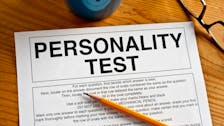The MMPI Test (Minnesota Multiphasic Personality Inventory) Explained (2026 Guide)
All products and services featured are independently selected by WikiJob. When you register or purchase through links on this page, we may earn a commission.
- What is a MMPI Test?
- Why Is the MMPI Test Not Online?
- Types of MMPI Test
- Which Industries Use the MMPI Test in 2026?
- Psychological Basis of the MMPI Test
- What Does the MMPI Test Measure?
- 10 Clinical Scales of the MMPI-2 Test
empty
empty
empty
empty
empty
empty
empty
empty
empty
empty
- MMPI Test Validity Scales
empty
empty
empty
empty
- Other Validity Scales for the MMPI Test
empty
empty
empty
- How to Prepare for the MMPI Test in 2026
- Top Tips for Success on the MMPI Test in 2026
- Frequently Asked Questions
- Final Thoughts
The Minnesota Multiphasic Personality Inventory (MMPI) test explores the psychopathology of your personality.
Employers may use this test to ensure that you are of sound mind.
This can be crucial in certain industries where mental health issues could have the potential to impair your decision-making, or affect the way that you carry out your job.
The MMPI personality test isn't your average psychometric test or personality assessment because it can only be administered, and the results interpreted, by a qualified psychologist.
What is a MMPI Test?
The MMPI, or Minnesota Multiphasic Personality Inventory, is a widely used psychological assessment tool designed to assess and measure various aspects of a person's personality, psychopathology, and mental health.
It was originally developed by clinical psychologists Starke R. Hathaway and J.C. McKinley in the late 1930s and has since gone through multiple revisions and updates.
The most commonly used version as of my last knowledge update in September 2021 is the MMPI-2-RF (Minnesota Multiphasic Personality Inventory-2-Restructured Form).
The MMPI is used primarily in clinical and forensic settings to help psychologists and mental health professionals assess and diagnose mental disorders, understand a person's personality structure and make treatment or evaluation recommendations.
Why Is the MMPI Test Not Online?
The MMPI can only be administered and explained by psychologists who are educated on how to use it.
This psychometric test is not found online, because it is considered an instrument that is protected
Types of MMPI Test
There are three main types of MMPI test: two for adults, and a third that is completed by teenagers.
-
MMPI-2 – The MMPI-2 test contains a total of 567 questions, all of which require a true or false response. Although this is the oldest of the MMPI tests, it's still the one used the most and is likely to be the one you are asked to complete. Candidates are expected to complete the test in 60 to 90 minutes.
-
MMPI-2-RF – An updated version of the above test, the MMPI-2-RF was introduced in 2008. The number of questions is reduced to 338, but it still requires you to provide a true or false answer. The test is relatively easy if you answer the questions honestly. Candidates will have between 35 and 50 minutes to complete the test.
-
MMPI-A – This has been designed specifically for use by teenagers to help to identify behavioural, social or personal problems. As it is aimed at those between 14 and 18 years of age, it’s probably not one that you will encounter during the recruitment process.
-
MMPI-A-RF: In 2016, the Minnesota Multiphasic Personality Inventory-Adolescent-Restructured Form (MMPI-A-RF) was published. Like the MMPI-2-RF, it's shorter, with just 241 questions that take 25 to 45 minutes to answer.6
-
MMPI-3: The latest version of the instrument, MMPI-3, was released in 2020. The test takes 25 to 50 minutes to complete and is available in English, Spanish, and French for Canada formats.7

Which Industries Use the MMPI Test in 2026?
If you apply for a job in finance or marketing, it’s unlikely that you will be asked to take one of the MMPI tests.
The MMPI-2 test is most often used in psychiatric assessments for inpatients and outpatients, though it is also used in a variety of non-clinical settings.
When it is used in a non-clinical setting, such as during the recruitment process, it can be an effective tool to screen candidates for high-risk positions – particularly in industries such as aviation and public safety.
The MMPI-2 test is also used for career counselling assessments.
Many of the questions contained within the test allow psychologists to understand how employees are adapting to their work environment from an emotional perspective, particularly in sectors where good judgment and consistent emotional stability are important.
Typically, this would apply to jobs within the police force, fire services, nuclear power plants or aviation.
Psychological Basis of the MMPI Test
Businesses need the right type of employees to drive their organisational strategy and meet key business objectives, and the selection process is vital to this.
As we have previously touched upon, the MMPI tests are a tool for employers to use in the recruitment process, not just to determine suitability but to continually improve their business.
Some roles require candidates to possess a unique set of skills and attributes and the MMPI-2 test is one of the best ways to evaluate the disposition, temperament and characteristics of employees.
Sometimes these mmpi psychological tests aim to assess candidates to see if they fall within the ‘normal’ range, while others are used to identify the prevalence of psychopathology.
The psychological basis for using the MMPI tests may vary depending on the company and the specific job. A counselling provider may, for example, use the test to assess how empathetic a candidate is, while an investigative or forensic type role may use the test to identify traits that would indicate mental instability.
Practice MMPI Test with JobTestPrep
What Does the MMPI Test Measure?
The MMPI test is designed to assess multiple elements of a candidate’s personality. This assessment is much more clinical in nature than the average personality test and is built around 10 different clinical scales.
Each of these scales will assess a candidate’s predisposition to abnormal behaviours.
There are also four validity scales which evaluate how honest and accurate the candidate’s answers were.
When approaching multiphasic personality test, some candidates will select the answer that they think the employer is looking for, but this test can identify whether the candidate is being honest.
10 Clinical Scales of the MMPI-2 Test
Scale 1 – Hypochondriasis (Hs)
Within this section, there are 32 questions that focus on how a candidate might perceive various complaints that relate to their health.
Scale 2 – Depression (D)
There are 57 questions in this section, which aim to evaluate whether the candidate is showing signs of clinical depression. This is indicated by signs that include hopelessness, low morale or a general level of dissatisfaction with life.
Scale 3 – Hysteria (Hy)
Through a series of 60 questions, this section is designed to identify people who are overly emotional or display hysteria in stressful situations.
Scale 4 – Psychopathic Deviate (Pd)
Over a total of 50 questions that make up this section, candidates are questioned about issues that relate to social maladjustment, rebelliousness and antisocial behaviour. Candidates will be asked about issues they may have with family or authority figures.
Scale 5 – Masculinity/Femininity (Mf)
Through 56 questions, the Masculinity/Femininity scale explores how a candidate might conform to a masculine or feminine stereotype. It looks at activity-passivity, hobbies and career choices, and personal sensitivity.
Scale 6 – Paranoia (Pa)
This scale measures a candidate's ability or inability to trust others. Through 40 questions, candidates will be questioned on issues such as levels of suspiciousness, self-righteousness and sensitivity. The method of questioning in this section will reveal any tendencies for paranoia or psychotic behaviour.
Scale 7 – Psychasthenia (Pt)
The term ‘Psychasthenia’ has now been replaced by ‘Obsessive Compulsive Disorder’ (OCD). The test contains 48 questions which aim to evaluate the presence of certain obsessive tendencies as well as anxiety, fear, doubts and guilt.
Scale 8 – Schizophrenia (Sc)
The longest section in the test, candidates will need to progress through a total of 78 questions. During this section, candidates will be assessed for unusual cognitive, emotional and social tendencies that might suggest schizophrenia.
Scale 9 – Hypomania (Ma)
This scale has 46 questions and measures a candidate for elevated energy levels and unstable moods. Candidates will be asked about things that would indicate excitability, such as rapid thoughts, accelerated speech or restless body movements. It also covers elements such as irritability, narcissism or egocentricity.
Scale 10 – Social Introversion (Si)
The tenth and final category in the MMPI-2 test features 69 questions. The Social Introversion scale measures whether a candidate is comfortable around other people and in social situations. For example, introverts might be uncomfortable in large groups or over-stimulating social situations.
MMPI Test Validity Scales
In addition to the ten clinical scales, there are several validity scales.
Sometimes, even without realising, candidates may answer questions based on what they think are supposed to be the right answers, rather than based on an honest analysis of themselves.
The MMPI tests cannot accurately measure the psychopathology of a candidate if they are not answering the questions honestly. Therefore, the validity scales in the test aim to identify whether the candidate is being truthful in their answers or not.
The key validity scales found in the MMPI-2 test are:
Lie (L)
This category aims to highlight anyone who is trying to sway the results of the Minnesota personality test by answering the questions in a specific way.
There are 15 questions in this section that aim to identify whether the candidate is altering their answers to make themselves look better.
F
The ‘F’ scale is used to identify if the questions are being answered in an unusual or obscure way.
This will, for example, determine if the candidate is answering questions randomly.
There are 60 questions in the ‘F’ category which are scattered throughout the test.
If you need to prepare for a number of different employment tests and want to outsmart the competition, choose a Premium Membership from JobTestPrep.
You will get access to three PrepPacks of your choice, from a database that covers all the major test providers and employers and tailored profession packs.
Back F (Fb)
Containing a total of 40 questions, this will identify the same things as those in the F category but focuses on the second half of the test.
K
Questions in this category will identify defensiveness but in a subtler way than the ‘Lie’ category.
Outside of those who are well educated and in control of their lives, a high score can indicate that the candidate is being defensive.
There are 30 questions in this section.
Scales in the MMPI test are used to measure both clinical spectrums and the validity of a candidate's answers.
Other Validity Scales for the MMPI Test
?
The question mark symbol is used to evaluate completeness and consistency. The ‘?’ will calculate the total number of questions that are left blank during the test.
Cause for concern should be raised when more than 30 of the questions are unanswered.
True Response Inconsistency (TRIN)
Some candidates can be quite strategic in their approach to the test, following a pattern such as fixed responding.
If the candidate uses this method, they will simply mark ten questions ‘true’ and then the following ten ‘false’.
This approach can mean that the candidate either doesn’t understand the test or is being defiant about being asked to complete it.
Variable Response Inconsistency (VRIN)
Consistency is one of the most important factors when completing the MMPI test. This scale will measure how consistent you are with your responses, identifying those that are inconsistent or even random.
How to Prepare for the MMPI Test in 2026
Preparation for the MMPI test is a little more complex than a conventional personality or aptitude test.
As this assessment is designed to assess quite specific elements of your mental health, it is not a test that you can prepare for as such. However, there are some things that you can do to ensure that you are in the best psychological shape.
To perform well in this test, you will need to develop your emotional intelligence. This requires a long-term commitment and probably isn’t something that you can transform during the recruitment process.
The best way to improve your emotional intelligence is to train your mind to be strong, pay attention to your psychological health and deal with problems head-on as they arise rather than letting them escalate.
If you do this as part of your everyday routine, you will be in the strongest possible position to perform well during this test, if you are ever asked to take it.
Top Tips for Success on the MMPI Test in 2026
As outlined above, you can’t really take specific steps in the days and weeks leading up to taking the MMPI test, usually because the behaviours and conditions that the test will evaluate are part of you as a person.
Furthermore, the Minnesota Multiphasic Personality Inventory test is not a typical test that results in a pass or a fail.
It is designed to be used primarily as a diagnostic tool that reveals certain types of personality, as well as specific mental illnesses and the degree of severity.
If you really want to prepare for the MMPI test, or simply familiarise yourself with the types and style of questioning, you can find resources online that will guide you through the format of the test, for example this from JobTestPrep.
You may find that it is difficult to find a practice test like you can with many of the other personality or psychometric tests. This is because the MMPI is designed to be issued by a qualified psychologist.
However, here are some tips to help you achieve the best possible result from the test:
Step 1. First and foremost, don’t lie
The test is designed to identify those that are lying to try and portray themselves as different to how they really are. Always be honest.
Step 2. Don’t overthink
There are a lot of questions in the MMPI test and you only have a limited amount of time to answer them. Learn how to read the potential answers carefully and then provide the first response that enters your head. The moment that you start to think too much or try to interpret the meaning behind what is being asked, you will not only lose valuable time, but your answers may flag up as being deceptive.
Step 3. Learn how to identify control questions
If you can find a practice MMPI test online, you will gradually learn how to identify these. A control question is one that is placed into the test to cast doubt on the honesty of your answers.
Step 4. Be consistent
This is particularly important when taking the MMPI test, as your responses will be evaluated to check for consistency. Over the course of the test, you will be given several questions which require the same answer but have been worded in a slightly different way. One of the best ways that you can achieve consistency is to carefully read each of the questions to make sure that you fully understand what is being asked.
Several websites offer the opportunity to take the test for free. However, for the results to be considered valid, it needs to be administered and evaluated by a qualified psychologist.
Yes, for the results to be valid the test needs to be administered and evaluated by a fully-qualified psychologist.
Theoretically, yes. It would potentially be possible to answer questions in a way that avoids identifying narcissistic traits. It is important to remember that the validity of results is largely reliant on honesty.
This is a personality assessment, therefore you can’t pass or fail it. The scores help to provide insight into your personality as well as any psychological problems you may be experiencing.
There are no correct answers within this test as it is used to identify personality traits.
If you would like to see example questions ahead of your assessment so that you can familiarise yourself with the format, there are plenty of websites that offer individuals the opportunity to answer practice questions.
In theory, yes, it is possible. The most important factor for the validity of this test is the honesty of the individual who is taking it.
It would be possible to answer questions in such a way that avoids identifying certain traits or perhaps emphasizes others.
The answers to questions are converted into T-scores which range from 30 to 120.
The T-score that an individual is given will then help to identify the personality and psychological status of individuals.
A score between 50 and 65 is considered to be normal. Anything above or below this would require further investigation from a psychologist.
The test can only tell psychologists the information that an individual gives. The results are entirely based on the answers which are given to questions.
With this in mind, it would be possible for scores to seemingly over-emphasize or under-emphasize certain conditions or disorders depending on the honesty of the participant and the answers that they give.
When you take the MMPI, it should be administered and scored by a professional psychologist. They will then be able to explain the results to you.
If the questions are answered honestly, then the results can be incredibly useful in highlighting psychological issues. It can then be used as a diagnostic tool to identify and treat conditions.
Although the test has been used for a long time, it is still a useful tool for psychologists to use.
When administered properly and answered honestly, the MMPI can help to identify areas of personality that may need further investigation.
It is important to remember, however, that MMPI isn’t the only tool that psychologists have available to them. It is one of many assessment tools which can be used to create a full picture.
As with all mental health conditions, the MMPI can be a useful tool in identifying traits or areas of concern.
However, schizophrenia is a highly complex condition and MMPI cannot be used to form a diagnosis by itself.
The diagnostic process for conditions such as schizophrenia is multi-faceted, with MMPI assessment forming just one part of the process.
Yes. As long as you answer the questions honestly, the results can be used to give insight into your personality.
It can also be used to highlight any tendencies which you may have towards conditions such as anxiety and depression as well as identifying several other psychological factors.
The MMPI test is used to identify personality traits. This means that it can be very useful in identifying a variety of mental health conditions.
The test can also be used by recruiters and employers who are looking for specific personality traits in their employees.
The MMPI test is widely accepted as being a reliable indicator for personality traits and psychological conditions.
However, this accuracy is largely dependent on the honesty of the person taking the test.
When used properly and evaluated by a professional psychologist, the MMPI can be a useful diagnostic tool.
This will depend on which version of the MMPI someone is taking. Different tests are used for different purposes. Depending on the test which is taken, it will take between 35 and 90 minutes to complete.
It is often used by clinical psychologists and psychiatrists to help assess a person's emotional and psychological functioning. It provides insights into an individual's personality traits, emotional states, and potential psychological problems.
The most widely used version is the MMPI-2, which contains 567 true-false questions. There is also a shorter version called the MMPI-2-RF (Restructured Form), which contains 338 items.
The individual being assessed is given a set of standardized questions to answer. These questions are typically presented in a true-false format or on a Likert scale, where the individual indicates their agreement or disagreement with each statement.
Once the individual has completed the questionnaire, their responses are scored according to established scoring protocols. Each response is scored, and the scores are then combined to produce a profile of the individual's personality and psychological functioning.
Final Thoughts
The recruitment process is gradually becoming more and more demanding, with employers looking for different ways to identify the very best candidates. A personality test such as the MMPI is designed to identify any behaviours or traits which may make the candidate a problematic hire.
Taking practice tests is one of the best ways that you can familiarise yourself with the types of questions that you will be asked during the test. Although it is very difficult to prepare for the Minnesota Multiphasic Personality Inventory, you can use the tips above to give yourself the best chance.
If you are asked to complete the test, the most important thing to remember is that you should be completely honest with your answers.








